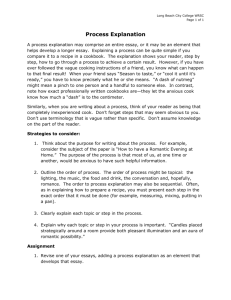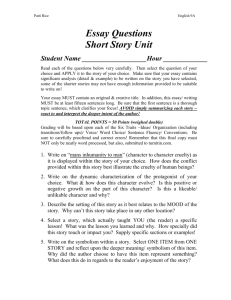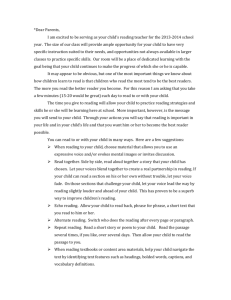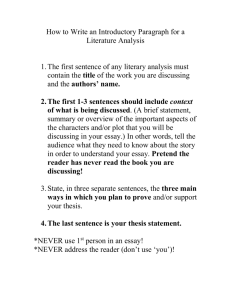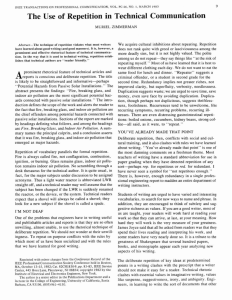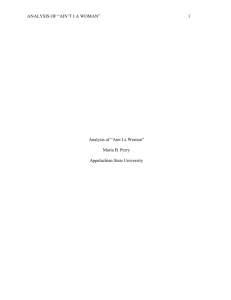Ain`t I a Woman Rhetorical Analysis
advertisement
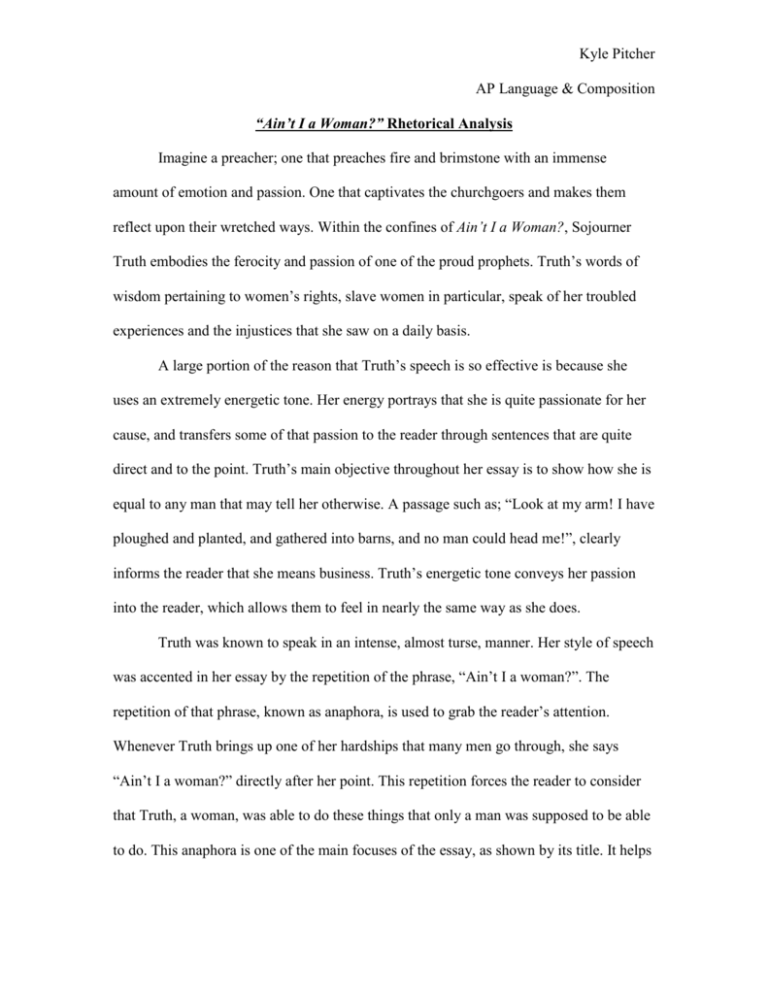
Kyle Pitcher AP Language & Composition “Ain’t I a Woman?” Rhetorical Analysis Imagine a preacher; one that preaches fire and brimstone with an immense amount of emotion and passion. One that captivates the churchgoers and makes them reflect upon their wretched ways. Within the confines of Ain’t I a Woman?, Sojourner Truth embodies the ferocity and passion of one of the proud prophets. Truth’s words of wisdom pertaining to women’s rights, slave women in particular, speak of her troubled experiences and the injustices that she saw on a daily basis. A large portion of the reason that Truth’s speech is so effective is because she uses an extremely energetic tone. Her energy portrays that she is quite passionate for her cause, and transfers some of that passion to the reader through sentences that are quite direct and to the point. Truth’s main objective throughout her essay is to show how she is equal to any man that may tell her otherwise. A passage such as; “Look at my arm! I have ploughed and planted, and gathered into barns, and no man could head me!”, clearly informs the reader that she means business. Truth’s energetic tone conveys her passion into the reader, which allows them to feel in nearly the same way as she does. Truth was known to speak in an intense, almost turse, manner. Her style of speech was accented in her essay by the repetition of the phrase, “Ain’t I a woman?”. The repetition of that phrase, known as anaphora, is used to grab the reader’s attention. Whenever Truth brings up one of her hardships that many men go through, she says “Ain’t I a woman?” directly after her point. This repetition forces the reader to consider that Truth, a woman, was able to do these things that only a man was supposed to be able to do. This anaphora is one of the main focuses of the essay, as shown by its title. It helps Kyle Pitcher AP Language & Composition in giving many of Truth’s statements more of a punch, which is welcome in something that attempts to be persuasive. While speaking with short, direct sentences, Truth still includes plenty of examples into her speech. The sheer number of persuasive points that Truth has at her disposal makes her writing much more potent. In the second paragraph of the essay, she speaks of the work that she has to do, and how she can do it just as well as any man. Truth starts by talking about just one problem, the fact that she was never lifted and put into a carriage like a woman with higher standing, and then branches out. From there, she talks about how she’s worked as hard as a man instead of being treated like a dainty thing, and how she eats as much as a man after a hard day of work, and how she can deal with and suppress her emotional traumas. There are many good examples of how she can handle anything the world throws at her, which just reinforce the point that she is trying to get across. Sojourner Truth places her livelihood within the words of her writing. By being direct with the reader, she develops a personal connection with them, as if they were speaking face to face. With the repetition of her all-important phrase, the readers are manipulated to reevaluate their current beliefs. The inclusion of the abundance of examples really drives in the point that she is attempting to prove. Truth speaks brilliantly and has a massive appeal.

